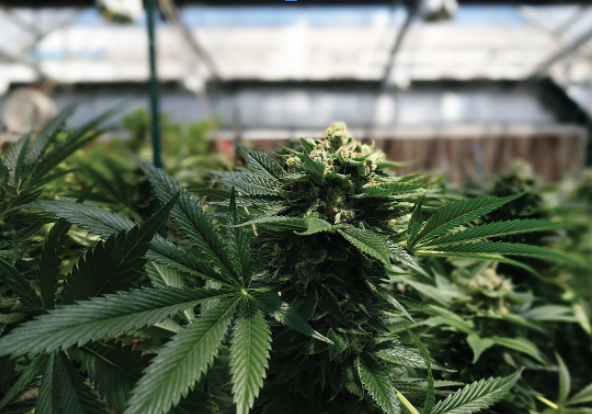
Cole Tamarri
Assistant Managing Editor
Recreational cannabis has only been legal in California since Jan. 1, one of the most liberal states in the country.
The slow-pace crawl of states legalizing the plant for medicinal use and eventually recreational use has been arduous thanks mainly to a Schedule 1 classification from the federal government, the Controlled Substances Act of 1971.
This essentially means that FDA testing and academic studying on the plant’s potential benefits and effects are very limited.
According to a Vice News article written in April 2016, the only cannabis approved for research in the U.S. is grown at the University of Mississippi, and the quality of plants grown is subpar.
Cannabis available for purchase at places like https://ultrazencbd.com/ widely ranges in THC (psychoactive element that creates high) levels from as low as 5% to as high as 20% and CBD (chemical component for medicinal use ) levels range widely depending on strain.
The cannabis studied at Mississippi pales in comparison, the THC level being 2% on average, and the CBD level are less than 1%.
Put simply, researchers are studying the worst cannabis possible.
As a result, Canada has eclipsed the U.S. on this issue.
A process that has taken 22 years since California first passed medical legalization to full legalization, Canada has pushed through their parliament in 18 months.
Cannabis has continuously been proven to alleviate the effects of PTSD, anxiety, migraines, chronic pain and seizures.
Although there is not enough data to determine conclusively any long-term effects, there are proven benefits to the plant.
We live in a country with an opioid crisis, and a binge-drinking culture and people are suffering from traumas, anxiety and depression.
While this plant is not a cure-all for these problems, no one has ever overdosed on cannabis.
People overdose on legal narcotics, approved by the FDA, every day.
There are no bar fights fueled by cannabis.
However, alcohol has been known to be a cause in assault and battery cases.
The point is, this country is continuing to approach cannabis with a regressive mindset. Can it make you lazy?
Sure, but so can getting drunk on a 30 pack of Natural Light.
The United States currently has an attorney general who wholeheartedly still buys into the “reefer madness” and “gateway drug” mindset that has been peddled by the federal government since the ‘30s.
This is why it is important to pay attention and vote Nov 6, because if you want the government to start working for you, and this issue, among others matters to you, it starts at the local level.
On a personal note, cannabis has helped me.
I had no idea what anxiety was until I was 16 years old, having a panic attack in my bathtub.
The next few years, I tried different prescribed drugs to help my anxiety and depression and they all left me feeling cloudy and out of touch.
After failing out of college the first time, and working for a couple years, struggling with my mental health, I tried cannabis.
It was like a cloud had lifted, and after finding a dosage that has worked for me, my sleep improved and I was able to go back to school and complete an associate’s degree with a solid GPA and make it to ESU while using the plant
This experience is unique to me, but I know there are other people not only in this state, but country who would benefit from cannabis treatments for a myriad of reasons.
Most of all, I want to stress that, if and when cannabis is no longer a Schedule 1 drug, and as states are continuing to legalize the plant, people who are serving prison time because of it, need to have their sentence pardoned, and their record cleaned.
The hypocritical “War on Drugs” has disproportionately affected people of color, and according to the ACLU, blacks are four times more likely to be arrested for possession of marijuana, despite usage rates of black and white people being roughly equal.
When cannabis is legalized fully, it needs to be done so responsibly, helping all communities.
Email Cole at:
ctamarri@live.esu.edu

